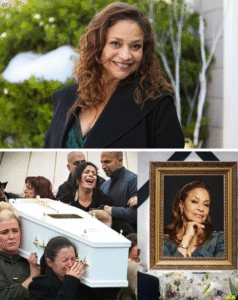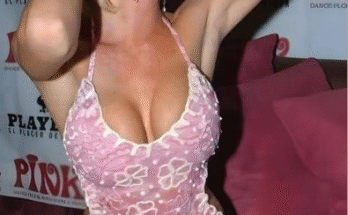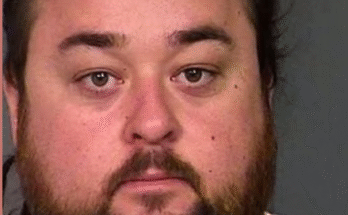A Fierce Beginning
Debbie Allen was born on January 16, 1950, in Houston, Texas, to poet and playwright Vivian Ayers and orthodontist Andrew Allen. From an early age she was immersed in art, dance, and culture. Wikipedia+1 Despite early rejections—she was told her body was “not suited for ballet” when she auditioned at the North Carolina School of the Arts—Allen persisted. magazine.howard.edu+1 After beginning serious training in Mexico and then Houston, she went on to earn a BFA in classical Greek literature, speech and theatre from Howard University.
These early experiences of rejection, discipline and perseverance would become central to her artistic identity. She learned not only the craft of dance and performance, but also the courage to reshape opportunity rather than wait for it.
A Multi-Hyphenate Force in the Arts
Allen’s rise is distinguished by her versatility. On Broadway she appeared in shows like Raisin and the revival of West Side Story, earning a Tony nomination. Biography+1 In 1980, she starred in the film Fame and became widely known for her television role as Lydia Grant in the series version of Fame. Wikipedia+2Biography+2
Her awards and recognitions are staggering: multiple Emmy Awards (notably for choreography), a Golden Globe, nominations for Tonys, Drama Desks, and more. magazine.howard.edu+1 But beyond performance, she mastered direction, production and advocacy. She directed and produced television shows such as A Different World (where she directed 83 of 144 episodes) and joined the cast and production staff of Grey’s Anatomy as Dr. Catherine Fox. Wikipedia+1
Her choreography extended to major events: she choreographed the Academy Awards multiple times and blended star-power with discipline. TheCityCeleb In short, Allen did not simply excel in one domain—she transformed how performance, television, and mentorship intersect.
Courage in the Face of Barriers
Allen’s story is one of breaking barriers. As a Black woman in dance, theatre, and television, she confronted systemic limitations. Early in her life she experienced discrimination in ballet schooling. magazine.howard.edu Yet she moved through those challenges with determination. She became a cultural ambassador, one of the first Black women to choreograph major televised events and earn top accolades. BroadwayWorld
Her mentorship of younger Black and Latino artists reflects her commitment to changing the pipeline of opportunity. As her university alma mater put it, she has a “singular ability to bring forth creative magic” and remains relevant across generations. magazine.howard.edu Her dance academy—and her producing work—make clear that for Allen, legacy is about opening doors for others, not simply climbing them herself.
Compassion and Community: The Dance Academy & Beyond
In 2001, Debbie Allen and her husband, former NBA star Norman Nixon, co-founded the Debbie Allen Dance Academy (DADA) in Los Angeles. Wikipedia+1 The school offers rigorous training to young dancers (ages 4–18) with a focus on inclusion and excellence—particularly serving Black and Latino communities. At DADA, Allen’s vision is clear: the arts equal access, and potential meets opportunity.
Her philanthropy extends into health advocacy and education. For example, Allen has spoken passionately about kidney health and the risks of diabetes, particularly within communities of color. EatingWell She emphasizes not just performance, but the well-being of the artist and the human being behind the craft. This integration of art and compassion illustrates her holistic view of legacy: the thriving of individuals, communities, and creative culture.
A Legacy in Motion
Allen’s influence spans decades, mediums, and generations. She has seamlessly shifted between on-stage performer, television star, director, producer, and mentor—all while maintaining authenticity and purpose. While many artists evolve, few do so with Allen’s breadth and depth.
Key moments:
-
Starring and choreographing in Fame, delivering a cultural touchstone for performance education and youth aspiration.
-
Directing A Different World, helping shape how Black college life was portrayed on television and influencing generations of viewers.
-
Founding DADA, creating a tangible institution for aspiring artists to train, trail-blaze and transform.
-
Using her platform for advocacy—health, wellness, arts education—ensuring her impact extends beyond entertainment.
Her commitment to craft, her refusal to be constrained by expectation, and her consistent uplift of others mean her legacy is not static—it’s alive, evolving, empowering.
Why She Matters Today
In an era when conversation about representation, access and mentorship is front-and-center, Debbie Allen’s career stands as a blueprint. She shows what is possible when talent meets tenacity, when a vision includes others, when success is shared rather than hoarded. Her work reminds us that excellence is not just about awards—but about creating space for the voices that follow.
She remains active, energetic, and engaged. At age 74 (as of 2024), she continues to perform, direct, teach, and create. People.com In recognition of her five-decade career, she is set to receive an honorary Oscar in 2025. Wikipedia
A Final Reflection
Debbie Allen’s story is one of art, courage and compassion. She pursued dance when doors were closed. She turned performance into production. She invested in young artists rather than just her own fame. She understood that craft is communal—that what you build is as important as what you perform.
Her legacy is not a single role, award, or silhouette on stage. It’s the ripple effect of opportunity she created, the lives she touched, the students who became stars, the communities that found voice. It’s the energy she brought—and still brings—into every rehearsal, classroom, set, and stage.
In celebrating Debbie Allen, we celebrate more than her talent: we celebrate the idea that artistry can transform. That barriers can be broken. That one person’s mission can become many people’s momentum. And that compassion—kindness, generosity, mentorship—can be as powerful as choreography or direction.
Her dance continues. And with each next generation she inspires, the music keeps playing.


